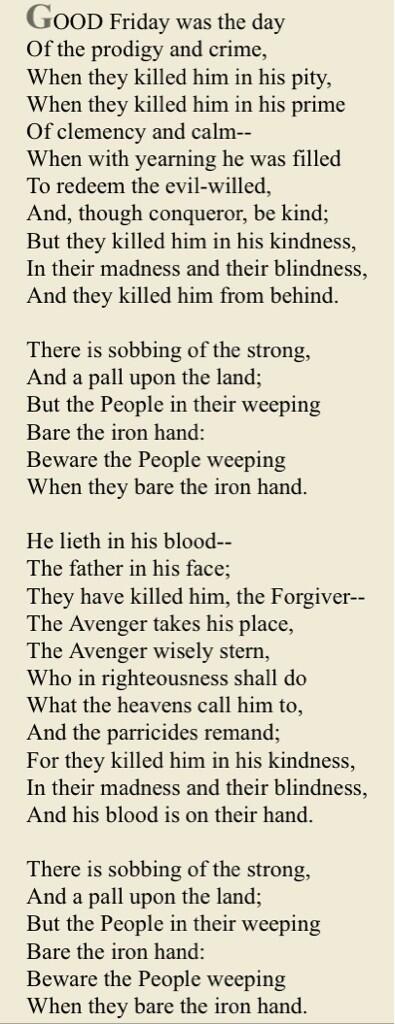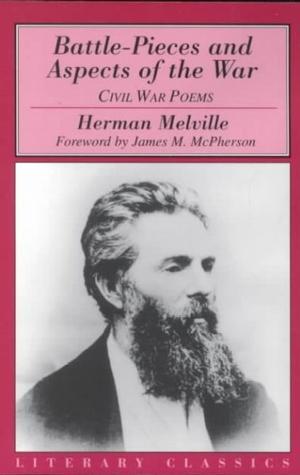One thinks of Lincoln and the Civil War at Thanksgiving.
Until only a few days ago I was ignorant of this poem.
"The Martyr"
GOOD Friday was the day
Of the prodigy and crime,
When they killed him in his pity,
When they killed him in his prime
Of clemency and calm--
When with yearning he was filled
To redeem the evil-willed,
And, though conqueror, be kind;
But they killed him in his kindness,
In their madness and their blindness,
And they killed him from behind.
There is sobbing of the strong,
And a pall upon the land;
But the People in their weeping
Bare the iron hand:
Beware the People weeping
When they bare the iron hand.
He lieth in his blood--
The father in his face;
They have killed him, the Forgiver--
The Avenger takes his place,
The Avenger wisely stern,
Who in righteousness shall do
What the heavens call him to,
And the parricides remand;
For they killed him in his kindness,
In their madness and their blindness,
And his blood is on their hand.
There is sobbing of the strong,
And a pall upon the land;
But the People in their weeping
Bare the iron hand:
Beware the People weeping
When they bare the iron hand.
"The Martyr" was originally published in Battle-Pieces and Aspects of the War. Herman Melville. New York: Harper & Brothers, 1866.
The poet's grief and bewilderment still weep and bleed in these lines.
Why did this happen? Madness and hatred and evil the poet says. Poets can use those terms, historians cannot. Except when it comes to acts of violence such as presidential assassinations and school shootings -- then everyone from police to journalists to historians rush to say, "This is the act of a lone madman."
Yet before and during the war, as well as after, even historians such as Henry Adams characterized the secessionists as mad men, filled with evil, because the secessionists' hatred was so inexplicable to the rest of the country.
But if John Wilkes Booth was "merely" mad, then certainly were all the fire eating secessionists, including those plotting to burn down NYC, Chicago and other northern cities, and take them over then, with a coalition of northern Democrats and southern secessionists come down from their refuge in Canada back in the fall of 1864.
So, what drove all these people insane? It could only be centuries of living in a society that was made of slavery and white supremacy.
Subscribe to:
Post Comments (Atom)




No comments:
Post a Comment